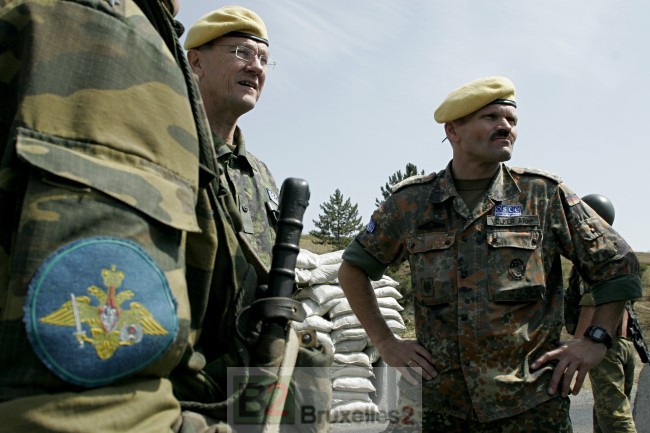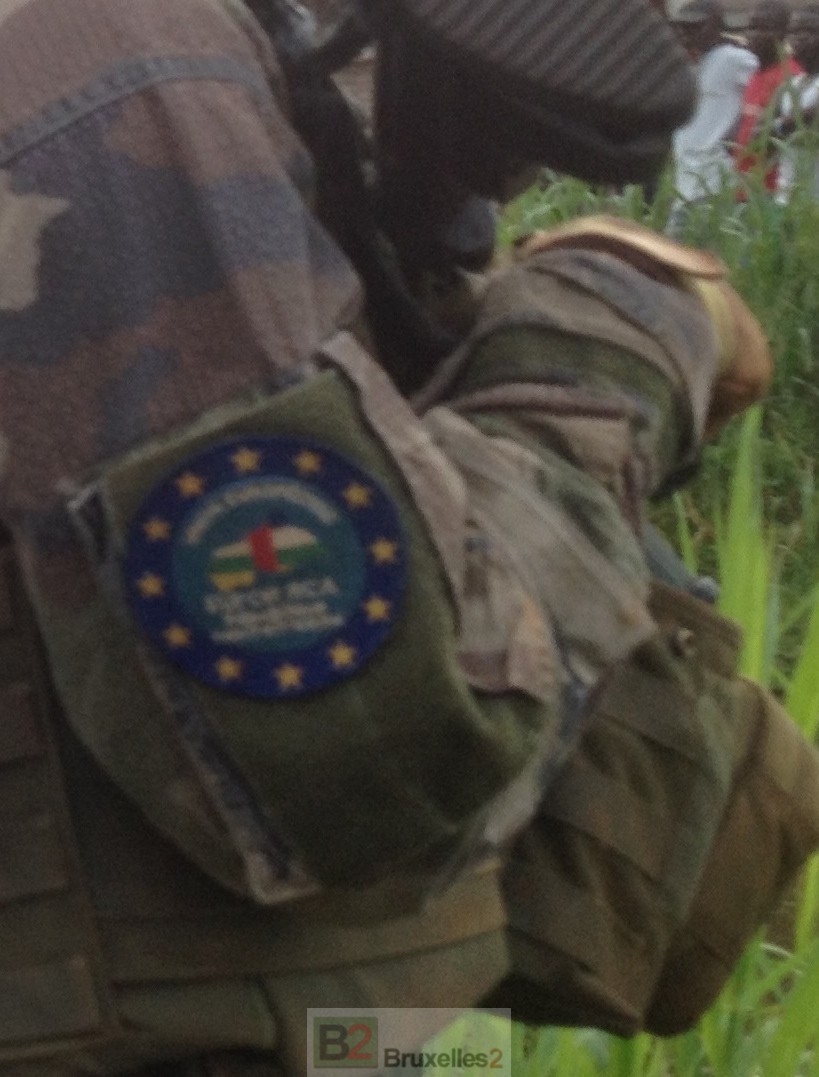Towards an EUMM Ukraine mission? The Europeans' plan B (updated)

(BRUSSELS2 – exclusive) This question is not yet on the agenda. But could become so very quickly. The establishment of an OSCE observation mission in Ukraine is indeed becoming complicated. As was to be expected, there was no agreement in Vienna on Tuesday evening. If the Russians agree in principle, they quibble over the details. And they could argue for a long time. In 2008, in Georgia, Russia (member of the OSCE) blocked any redeployment of the organization's mission, even though it was already there, in Abkhazia and South Ossetia.
An alternative offered by some countries
Some countries – Sweden in particular, followed by Poland – have already proposed – if the “OSCE” option fails – to deploy a mission under the flag of the European Union. An option that the High Representative is refusing to consider for the moment. As Catherine Asthon’s spokesperson explained to B2, “ Foreign ministers clearly gave support to the deployment of the OSCE mission. This is our position and it remains so »
Timeout
The reality is that, on Monday, the High Representative – relaying the feelings of the other ministers – expected a rapid decision, Tuesday at the latest, as she detailed to the press:
“We have also given our support for the swift deployment of an OSCE Special Monitoring Mission on the ground throughout Ukraine. I hope that such a decision can be taken in Vienna today or tomorrow. »
This deadline has now passed. If on the side of Vienna, at the OSCE, this is not resolved, the alternative “EU” option of the Swedes and Poles could be studied…. The heads of state and government could also look into this subject on Thursday. A bit like what happened in Georgia. Where, in the absence of an OSCE mission, the European Union had set up and deployed, in a record time of 3 weeks, a mission of more than 300 observers, civilians (but most of them military). The interest now is to go quickly. Because the situation can quickly deteriorate or worsen on the ground.
The European experience
The experience of EUMM Georgia, acquired over 6 years now, can serve as a model. And the Europeans already have a small support point there: in Odessa and along Transnistria. With almost total discretion, European customs officers provide training and assistance to their Ukrainian (and Moldovan) colleagues, within the EUBAM Moldova Ukraine mission. The crisis management services of the EEAS are now well versed in setting up such a mission. As for the resources – in men – those promised to the OSCE come mainly from European Union countries. And it is not prohibited to associate third countries (such as Norway, Canada, the United States, Switzerland, etc.). This is already the case in several other EU civil/military missions or operations.
Goal : information feedback
The objective of such an observation mission is to stabilize the situation. But its impact is multiple (*). It ensures a presence on site – which already has a deterrent effect on potential troublemakers – and also concretely demonstrates European solidarity. It makes it possible to put in place mechanisms to facilitate dialogue, on site, with “neutral” intermediaries between communities who may have difficulty interacting directly. Finally, it makes it possible to ensure – in near real time – the feedback of information both to Brussels and the government concerned (kyiv) and to analyze it. This allows us to put an end to certain false information, rumors or others which often make the situation worse on the spot. In Georgia, the press releases from the European EUMM observers give the “the” and are treated by the various observers and media as “the” information, because they are deemed more objective than the information from Tbilisi or the local governments of Ossetia or Abkhazia. . Which also contributed to the reduction of tensions.
(updated) The various Russian objections raised at a new OSCE meeting in Vienna on Wednesday (third meeting of the week) confirm our initial analysis. Russia wanted the observation mission to have a broad objective: “all of Ukraine”. This point has been clarified, by providing certain clarifications at several points in the text such as “throughout Ukraine”, “without discrimination or exclusion”, etc. But, apparently, the Russian delegation requested additional clarification. To the point that the American delegate lost his patience a little. “(Your) request has been clearly answered. There is no excuse not to move forward. »
(UPDATE – March 21) This question could become more topical. The Europeans have set themselves “a few days” to obtain an agreement on the OSCE mission. “Failing that there will be a mission deployed under the aegis of the European Union” confirmed the German Chancellor, Angela Merkel, the French President, François Hollande, as well as the President of the Council of the European Union, Herman Van Rompuy.
(*) A mission like EUMM Georgia also has the objective “ to monitor, analyze and report on the situation relating to the stabilization process”.

